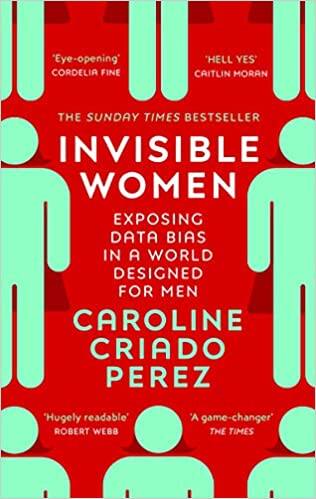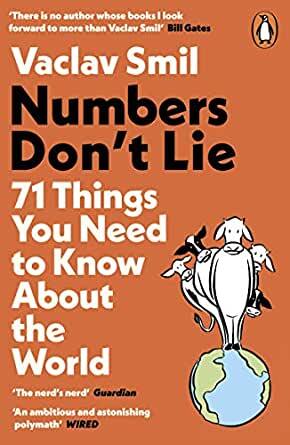



1.Price Wars: How chaotic markets are creating a chaotic world by Rupert Russell

We, in financial markets, think of prices including commodity prices as numbers on a ticker tape, spreadsheet or on a chart and often forget that these represent actual goods with real world consequences.
Russell goes around the world, specially to many chaoticcountries, facing everything from separatists tohyperinflation - from Ukraine to South Americato Kenya and finds that commodity prices and markets from oil to food grain are behind a lot of the conflict and turmoil around the globe. He reports at times, literally from the trenches and makes you relook at your world view, including whetherfinancialisation of certain assets causes complete distortions in the market, where even reality doesn't matter – what matters is only the belief of market participantsabout reality. Also makes you look at things through another lens. For example, how the Arab spring itself was triggered by higher wheat prices. All of the analysis took on immediacy as energy and agricultural goods inflation once again began to cause instability in many places this year.Of course, it is a book with a point of view and not a totally dispassionate one.Also read: Global inflation and the perils of making forecasts
2. A Short History of Financial Euphoria by John Kenneth Galbraith
Rereading of a classic.Short book. Can be read in a single sitting.Wonderfully well-written! One can quote from virtually every page of it.Besides the recounting of many past bubbles from Tulipmania and the South Sea Bubble to Wall Street in 1929, the real value of the book is setting out the framework or template for understanding the euphoric episodes or bubbles. As a sampler:Bubbles are a feature of financial markets. Not a bug. They will always repeat. “There can be few fields of human endeavour in which history counts for so little as in the world of finance.”“ All financial innovation involves, in one form or another, the creation of debt..."After the inevitable burst, the lynch mobs look for villains but refuse to hold speculators and the markets accountable, but they should shoulder the blame too.As the recent crypto burst shows, the lessons never grow old!
4. Wanderers, Kings, Merchants – The story of India through its languages by Peggy Mohan
This book was both illuminating as well as disturbing in parts.It is about the evolution of South Asian languages and has fascinating nuggets like what is the one thing that is common across all South Asian languages and which does not exist in other related languages. It almost like a necessary and sufficient condition to classify a language as coming from the Indian subcontinent.It also explains a critical fact about languages that at least I wasn’t aware of. Languagesoften don’t evolve and disappear slowly:they can remain unchanged for centuries – for example, Amir Khusru’s writings of a thousand years ago are still intelligible to us; but it takes only one generation of children growing up without a certain language as their first language for that language to deteriorate. It candisappear at worst or become a degraded language used only for daily interactions without complex thought.That this could be the fate of languages we call our mother tongues literally kept me awake at night. That we could be the generation that kill our languages is a frightening one.5. Doing Justice: A Prosecutor’s Thoughts on Crime, Punishment and the Rule of Law byPreet Bharara
This year there have been several books that I have read only because of friends' recommendations. This is one of them. I would not have picked it up otherwise as I do not have a very high opinion of the famous US Attorney for the Southern District of New York. In my view, he was less than fair in many cases, including the Rajat Gupta-Rajarathnamone.Remember this is a man trying for political office so it’s a well-done self-image job but it still remains readable and interesting. It is sofor what Bharara sets out to tell us like the interrogation techniques that really work (no, it isn’t what you think). The delight for me was figuring out that these were not that different from what I instinctively came up with when talking to company managements. On the other hand, facts that he mentions in passing like his near 100% conviction rate give a glimpse of all that is wrong with the American justice system.Also read: Three investing mistakes to steer clear of
6. Partition Voices by Kavita Puri
Unsurprisingly, as a child of two Partition refugees, this is a subject I keep returning to. I have a read a number of books on the subject.7.A Saint, a Folk Tale and Other Stories: lesser known monuments of India by Rana Safvi
A captivatingtour of forgotten monuments dotted all over the country from the 'Red Taj Mahal' in a Catholiccemetery in Agra to Raja Mansingh’sRohtas fort in Bihar to the Magnificent Varahasculpture in the Udaygiri caves in Vidisha to the oldest brick temple in the country to the Daulatabad fort and much much more.Deserved to be a coffee table book with lavishly mounted photographs but I suppose the economics did not permit it.Besides these, a glance at the best of the rest.Numbers don't lie: 71 things you need to know about the world by Václav Smil.

And Chorangi by Sankar – a 1960s novel about a wide range of characters in a top hotel in the then, Calcutta. Quite amazing that it was written when the author was not even 30.
Discover the latest Business News, Sensex, and Nifty updates. Obtain Personal Finance insights, tax queries, and expert opinions on Moneycontrol or download the Moneycontrol App to stay updated!
Find the best of Al News in one place, specially curated for you every weekend.
Stay on top of the latest tech trends and biggest startup news.